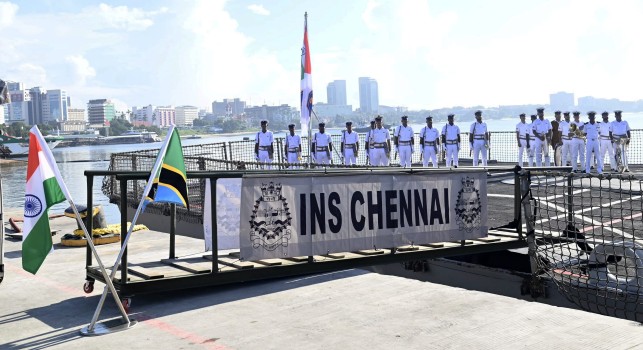
Joint Land Attack Cruise Missile Defense Elevated Netted Sensor (JLENS) System.
TEWKSBURY, MASSACHUSETTS (BNS): Raytheon Company's aerostat system – Joint Land Attack Cruise Missile Defense Elevated Netted Sensors (JLENS) – recently completed a successful endurance test.
The JLENS is a tactical, theater-based, advanced sensor system. The system is elevated by tethered aerostats to enable battlefield commanders to increase their wide-area protection against land-attack cruise missiles.
"This recent test demonstrates JLENS' ability to stay aloft for extended periods performing its surveillance mission at lower costs than other systems and in a reliable manner. This test, along with others, is proving JLENS' value as an important component of the larger integrated air and missile defense mission," David Gulla, vice president for Global Integrated Sensors at Raytheon Integrated Defense Systems (IDS), was quoted as saying in the company news release.
Raytheon is conducting JLENS flight tests at the Utah Training and Test Range near Salt Lake City.
The system is primarily designed to detect, track and support engagements of cruise missiles and other air breathing aircraft, but is fully capable of detecting air, missile and surface threats.
JLENS provides the long endurance (up to 30 days on station), over-the-horizon detection and tracking capabilities required to defeat the proliferating cruise-missile threat.
A JLENS "orbit" consists of two tethered 74-meter aerostats that can be elevated to 10,000 feet. One aerostat contains a surveillance radar that provides 360-degree coverage out for long distances depending on terrain. The other aerostat lifts a fire control radar. Also, each of the aerostat platforms can integrate other communications and sensor systems.
 Previous Article
Previous Article Next Article
Next Article













The Indian Air Force, in its flight trials evaluation report submitted before the Defence Ministry l..
view articleAn insight into the Medium Multi-Role Combat Aircraft competition...
view articleSky enthusiasts can now spot the International Space Station (ISS) commanded by Indian-American astr..
view article